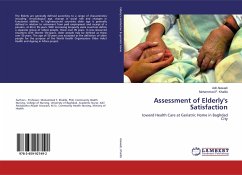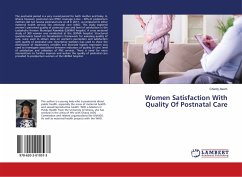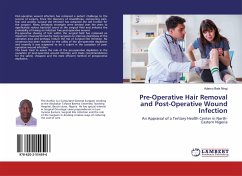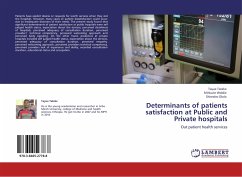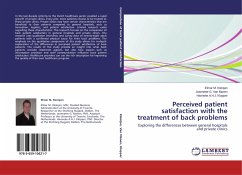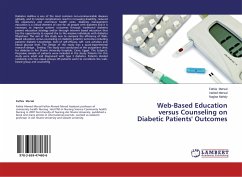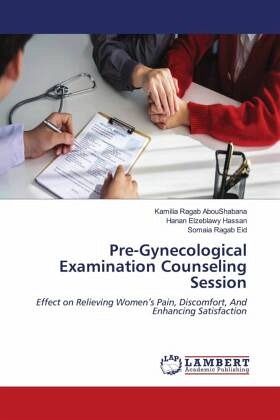
Pre-Gynecological Examination Counseling Session
Effect on Relieving Women's Pain, Discomfort, And Enhancing Satisfaction
Versandkostenfrei!
Versandfertig in 6-10 Tagen
40,99 €
inkl. MwSt.

PAYBACK Punkte
20 °P sammeln!
Gynecological examination is a crucial part of gynecological control. It is a stressful procedure, and the woman may respond negatively as a consequence of her lack of orientation before the examination. Previous negative experiences of gynecological examination, inattention to privacy, religious beliefs, fear of pain, fear of pathological diagnosis, fear about personal hygiene, negative first pelvic examination experience, and socio-cultural value.Women may experience strong discomfort during pelvic examinations but find it necessary to reassert their health. Therefore, gynecological examinat...
Gynecological examination is a crucial part of gynecological control. It is a stressful procedure, and the woman may respond negatively as a consequence of her lack of orientation before the examination. Previous negative experiences of gynecological examination, inattention to privacy, religious beliefs, fear of pain, fear of pathological diagnosis, fear about personal hygiene, negative first pelvic examination experience, and socio-cultural value.Women may experience strong discomfort during pelvic examinations but find it necessary to reassert their health. Therefore, gynecological examination applications can cause some traumatizing impacts that result in reactions such as avoidance of being examined, light anxiety, and a feeling of shame.Nurses play an important role in counseling, motivating, and assisting patients in making health behavior changes through assisting in improving behaviors, providing self-management tools, and supporting patient self-management. Counseling is a dynamic and purposeful relationship between two people who approach a mutually defined problem with mutual consideration for each other.




